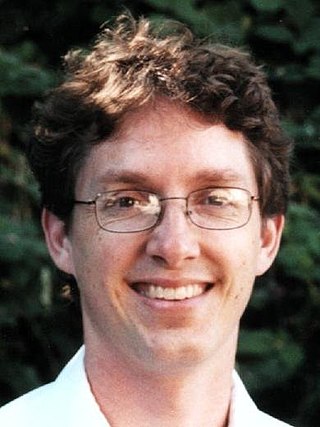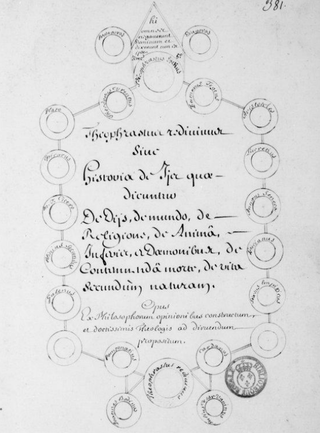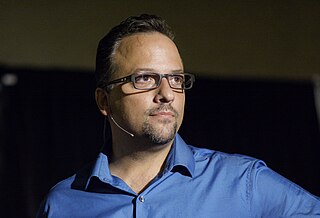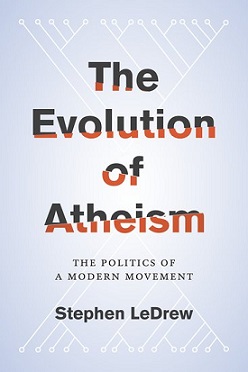Agnosticism is the view or belief that the existence of God, of the divine or the supernatural is unknown or unknowable. It can be categorized as an indifference or absence of firm beliefs in theistic religions and atheism on that basis. Another definition provided is the view that "human reason is incapable of providing sufficient rational grounds to justify either the belief that God exists or the belief that God does not exist."
Jewish atheism refers to the atheism of people who are ethnically and culturally Jewish. Contrary to popular belief, the term "Jewish atheism" is not a contradiction because Jewish identity encompasses not only religious components, but also ethnic and cultural ones. Jewish law's emphasis on descent through the mother means that even religiously conservative Orthodox Jewish authorities would accept an atheist born to a Jewish mother as fully Jewish.

Antony Garrard Newton Flew was an English philosopher. Belonging to the analytic and evidentialist schools of thought, Flew worked on the philosophy of religion. During the course of his career he taught philosophy at the universities of Oxford, Aberdeen, Keele, and Reading in the United Kingdom, and at York University in Toronto, Canada.

Jennifer Michael Hecht is a teacher, author, poet, historian, and philosopher. She was an associate professor of history at Nassau Community College (1994-2007) and most recently taught at The New School in New York City.

A Rough History of Disbelief, known in the United States as Atheism: A Brief History of Disbelief, is a 2004 television documentary series written and presented by Jonathan Miller for the BBC and tracing the history of atheism. It was first shown on BBC Four and was repeated on BBC Two. It was first shown in the U.S. on PBS in 2007.
Atheism, in the broadest sense, is an absence of belief in the existence of deities. In a narrower sense, atheism is specifically the position that there are no deities and any statements to the contrary are false ones. The English term 'atheist' was used at least as early as the sixteenth century and atheistic ideas and their influence have a longer history.
Bob Cornuke is an American writer and president of the Bible Archaeology Search and Exploration Institute (BASE), which is operated from his home in Colorado Springs, Colorado. He describes himself as a Biblical archaeologist, but has no degree or training in archaeology.

Richard Cevantis Carrier is an ancient historian. He is long-time contributor to skeptical websites, including The Secular Web and Freethought Blogs, Carrier has published a number of books and articles on philosophy and religion in classical antiquity, discussing the development of early Christianity from a skeptical viewpoint, and concerning religion and morality in the modern world. He has publicly debated a number of scholars on the historical basis of the Bible and Christianity. He is a prominent advocate of the theory that Jesus did not exist, which he has argued in a number of his works. Carrier's methodology and conclusions in this field have proven controversial and unconvincing to most ancient historians, and he and his theories are often identified as fringe.

Diagoras "the Atheist" of Melos was a Greek poet and sophist of the 5th century BC. Throughout antiquity, he was regarded as an atheist, but very little is known for certain about what he actually believed. Anecdotes about his life indicate that he spoke out against ancient Greek religion. He allegedly chopped up a wooden statue of Heracles and used it to roast his lentils and revealed the secrets of the Eleusinian Mysteries. The Athenians accused him of asebeia (impiety) and banished him from their city. He died in Corinth.
Popularized by Richard Dawkins in The God Delusion, the spectrum of theistic probability is a way of categorizing one's belief regarding the probability of the existence of a deity.
The End of the Soul: Scientific Modernity, Atheism, And Anthropology in France, 1876–1936 by Jennifer Michael Hecht was published in 2003 by Columbia University Press. It tells how a group of leading French citizens, men and women included, joined together to form an unusual group, The Society of Mutual Autopsy, with the aim of proving that souls do not exist. The idea was that, after death, they would dissect each other and (hopefully) show a direct relationship between brain shapes and sizes and the character, abilities and intelligence of individuals. The book argues that this strange scientific pact, and anthropology itself, which the group's members helped to develop, had its genesis in aggressive, evangelical atheism.
Nontheist Quakers are those who engage in Quaker practices and processes, but who do not necessarily believe in a theistic God or Supreme Being, the divine, the soul or the supernatural. Like traditional Quakers, also known as Friends, nontheist Friends are interested in realizing peace, simplicity, integrity, community, equality, love, joy, and social justice in the Society of Friends and beyond.
Atheism, in the broadest sense, is an absence of belief in the existence of deities. Less broadly, atheism is a rejection of the belief that any deities exist. In an even narrower sense, atheism is specifically the position that there are no deities. Atheism is contrasted with theism, which in its most general form is the belief that at least one deity exists.
Possibilianism is a philosophy that rejects both the diverse claims of traditional theism and the positions of certainty in strong atheism in favor of a middle, exploratory ground. The term was invented by Robbie Parrish, a friend of neuroscientist David Eagleman who defined the term in relation to his 2009 book, Sum: Forty Tales from the Afterlives.
The term New Atheism was coined by the American journalist Gary Wolf in 2006 to describe the positions of some atheist academics, writers, scientists, and philosophers of the 21st century.

Theophrastus redivivus is an anonymous Latin-language book published on an unknown date sometime between 1600 and 1700. The book has been described as "a compendium of old arguments against religion and belief in God" and "an anthology of free thought."

Seth Andrews is an American activist, author, and speaker on the subject of atheism. He is the creator and host of The Thinking Atheist online community, podcast, and YouTube channel, as well as the author of four self-published books. Prior to his atheist activism, he was a fundamentalist Christian and had a ten-year career as a Christian radio host.

The Evolution of Atheism: The Politics of a Modern Movement is a 2015 book by Stephen LeDrew, adapted from his PhD dissertation. Though an atheist, LeDrew criticises the movement of New Atheism, which arose in the 2000s with the "Four Horsemen" Richard Dawkins, Daniel Dennett, Sam Harris and Christopher Hitchens as prominent figures.








